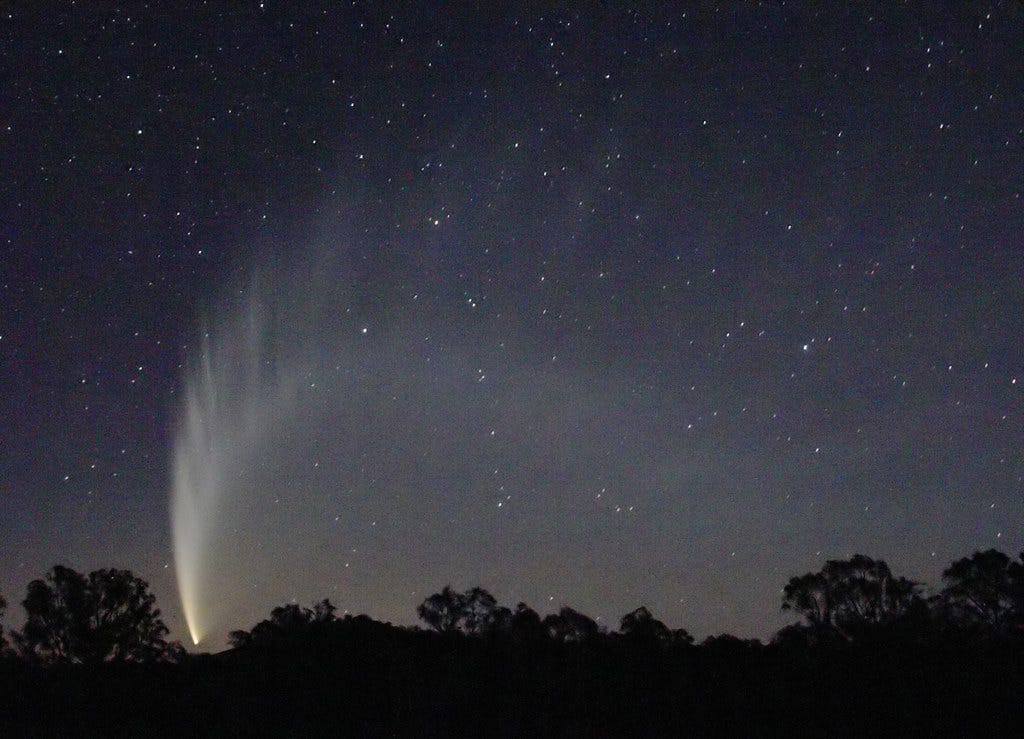4000-Year Comets Fall to Earth (Piece by Piece) as Meteor Showers - The Cosmic Companion May 26, 2021
Even tens of centuries after passing the orbit of Earth, debris from long-period comets can still produce shooting stars on Earth - or, perhaps, disaster.
Rare 4000-year comets could affect Earth, resulting in a displays of shooting stars — and a chance of catastrophe.
Debris from long-period comets — with orbits lasting up to 4,000 years — could still produce displays of shooting stars hundreds of years after the comet passes. Image credit: Andrew Wallace/Flickr
As Earth orbits the Sun, our planet regularly passes into the path of (largely) rocky debris left behind by comets which pass close to the orbit of our home world. Some comets travel close to the Sun, orbiting quickly (constantly refreshing the supply of debris along their path). Others take hundreds or thousands of years to complete a single orbit.
Debris from these long-period comets, some of which can take 4000 years to make a single circle of the Sun, is usually too thin to measure, or escapes to interstellar space.
As new cameras begin to view the night sky (particularly in Australia, Chile and Namibia), researchers are able to determine the origin of a growing number of meteors seen streaking across the sky.
Read more: https://thecosmiccompanion.net/4000-year-comets-fall-to-earth-as-meteor-showers
Upcoming guests on Astronomy News with The Cosmic Companion
This week May 25 (s4/e21): The Interstellar probe – exploring space between the stars with Dr. Elena Provornikova from Johns Hopkins University Applied Physics Laboratory
June 1 (s4/e22): Using computer modeling to peer inside the atmosphere of Saturn with Dr. Sabine Stanley of Johns Hopkins University.
June 8 (s4/e23): Dr. Bruce Betts, Chief Scientist and LightSail Program Manager for The Planetary Society
Date TBA: ~just added~ Dr. Noah Petro, NASA’s Project Scientist for the Lunar Reconnaissance Orbiter (LRO), talking about the Moon!
Remember - VIP members see every episode of this show a day early! Plans start at just $5 a month - subscribe today!
For more details on space and astronomy news, please visit: thecosmiccompanion.net or thecosmiccompanion.com.
Thanks for reading, donating, and sharing!
- James




